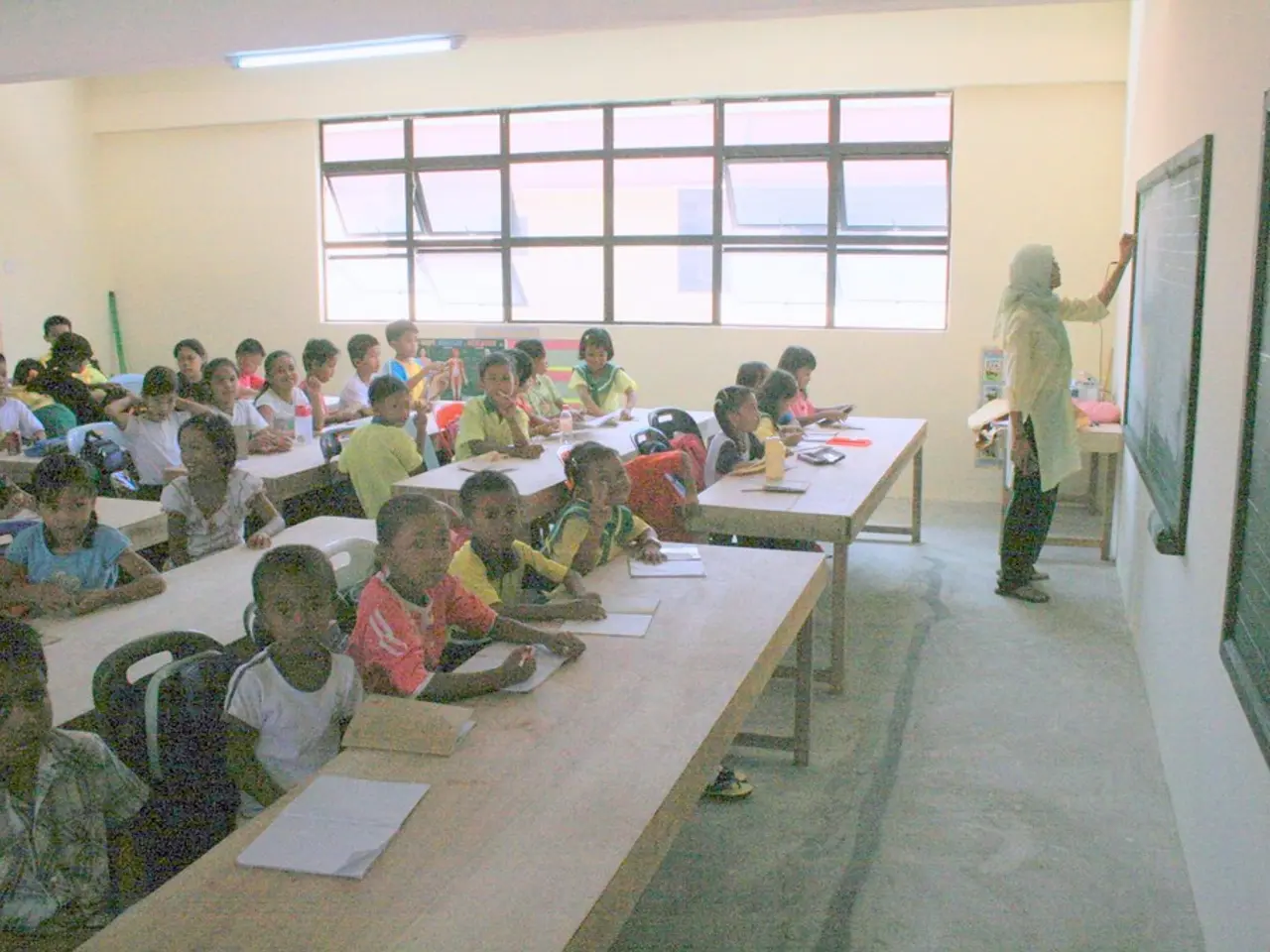Uncovering Secret Academic Obstacles: A Guide
Hidden learning challenges can affect individuals in various ways, impacting their self-confidence, academic performance, and career development. These challenges, often referred to as "twice exceptional" or "2e," are characterised by giftedness in certain areas coupled with specific learning difficulties.
Parents, as the first and most important teachers, play a crucial role in spotting these hidden learning challenges. Signs and symptoms include trouble following directions, reading and writing difficulties, problems staying organised, memory issues, and behavioural challenges. Other signs may include avoidance of schoolwork, frustration with learning, and delayed or immature speech development.
Common coping mechanisms used to mask these hidden learning challenges include saying "I don't know" to avoid mistakes, getting distracted, or pretending to forget things. It's essential for teachers and parents to understand these responses as a way to avoid mistakes and not to punish or ridicule the individual.
To tackle the underachievement of gifted learners, a detailed plan is needed. This includes educational assessment, tailored learning plans, and a supportive setting. Creating a positive learning environment is key, using inclusive learning accommodations that fit the individual's needs, such as using different learning materials or giving extra time for tasks.
At home, parents can see signs of learning challenges, such as trouble with homework, not wanting to read, or not doing well in school. By noticing these signs, parents can take action to help their child get the support they need, such as seeking professional guidance and resources.
Professional assessment is important for identifying hidden learning challenges. This involves tests and evaluations such as learning disability assessment, cognitive testing, and educational psychology evaluations. These assessments offer deep insights into an individual's learning style, helping to create a personalised approach to education.
Recent advances include objective, technology-aided methods like using wearable motion sensors and AI to detect subtle motor signs linked to neurodevelopmental differences, which can hasten early screening and diagnosis.
Addressing hidden learning challenges benefits from timely recognition, professional assessment, personalised interventions, and ongoing support both at school and home. Additionally, considering hidden psychological factors like trauma may be important, as unrecognised trauma can complicate learning and emotional regulation, requiring sensitive approaches and possibly therapeutic support.
By tackling these hidden challenges and creating a supportive work environment, people can reach their full potential. Resources are available to support parents of children with hidden learning challenges, such as learning about learning disabilities, joining support groups, and finding advocacy organisations. Counselling can also help with the emotional side of dealing with these challenges.
It's important to spread awareness and make learning spaces inclusive. Starting early to help is also vital. This support is needed from childhood to adulthood. By focusing on a positive learning environment and self-advocacy, those with hidden challenges can do well and reach their goals. Lifelong learning is essential, helping everyone reach their goals and working together to make sure everyone has a chance to succeed.
- To aid in the early identification of hidden learning challenges, parents should be aware of signs indicative of social skills deficits, such as difficulty making friends or understanding social cues, which can hinder personal development and academics.
- Implementing positive parenting techniques, like encouragement, open communication, and promoting a growth mindset, can help manage behavioral issues stemming from learning challenges and foster a conducive environment for mental health and overall health-and-wellness.
- For the holistic development of children with hidden learning challenges, it's beneficial to incorporate topics like science, technology, and health-and-wellness into their learning plans, as these are essential for their academic growth and career success besides addressing their unique educational needs.




